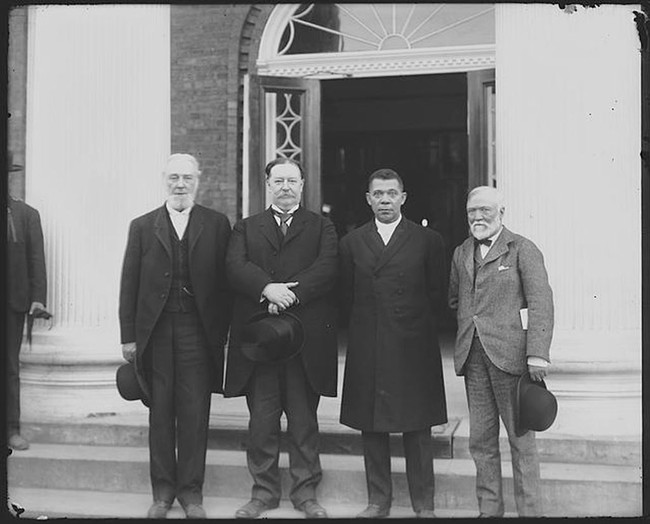
Booker T. Washington was one of the greatest American educators, and we could not do better in our quest to reform our educational system than to adopt his plan of combining trades with classical learning, thus training the hands, the head, and the heart.
Washington, who had been born a slave on April 5, 1856, and even after freedom always had to work incredibly hard for the learning he obtained, understood the vital importance of education. But he did not want it to be mere literacy or checked-off boxes, as is so often the case in Communist nations, and now even in the United States. A bad education, particularly one with bad morals and principles, can be just as harmful as no education at all, or even more harmful.
As Washington once reflected, “It is pretty hard, however, to help a young man who has started wrong. Once he gets the idea that — because he has crammed his head full with mere book knowledge — the world owes him a living, it is hard for him to change.”
That is, unfortunately, the arrogance that we see now among too many college graduates and academics, individuals who think, because they have earned a degree (in many cases a nearly worthless, woke degree), they are inherently superior and are owed homage and money for the rest of their lives. Washington always strove to inculcate in his students a respect and value for hard labor, both in the classroom and in the workshop.
And most importantly, Washington was much more grateful and humble, despite having overcome great obstacles and achieved significant success, than many a gender studies major who couldn’t pass a basic spelling or multiplication test. And, pertinently for today, Washington decried those who nursed grievances over racism, real or fancied, and demanded special privileges because of their skin color. Such individuals “have thus got into the habit of relying on this sympathy rather than on their own efforts to make their way,” Washington critically observed. He was frustrated by his fellow Americans who expected the government to always solve their problems for them, too.
In the last few years, investigative journalists, politicians, and parental rights groups have come forward to expose the sexualization, propagandization, and stultification going on in our school system, especially in public schools, but also in leftist private schools, from preschool through university. Some of these individuals also have sound advice on how to reform our school system, including electing patriots to school boards and abolishing the Department of Education. But we also need to develop curricula for new schools or reformed schools, to replace the Marxist propaganda and boost our children’s test scores.
For Our VIPs: Democrats’ World Is Upside Down and Sick
A return to the great Classics of Western civilization that inspired the Founders and other great Americans — including the writings of Vergil, Seneca, Cicero, Euclid, Socrates, Shakespeare, Augustine, Dickens, Longfellow, Irving, Kepler, Dante, Austen, Dickinson, and Keats — is essential. We need to educate the next generation also about our brilliant American political system, and how each one of us is responsible for choosing who governs this nation. And most especially, taking inspiration from Booker T. Washington, we should be teaching skills like sewing, carpentry, plumbing, cooking, and building in our schools. We did once upon a time, and it is highly important that we do so again.
Booker T. Washington understood that combining excellent academics with manual labor not only provides each individual with versatile skills that he can apply for the rest of his life, either at home or in the workplace, but it also keeps in check the arrogance to which academics are so liable. As he said, he learned a great deal simply by observing nature and interacting with other people, and worried about those with heads so “crammed… with mere book knowledge” that they began to demand jobs and success as their right. “Nothing ever comes to one, that is worth having, except as a result of hard work,” Washington insisted.
How wise indeed was Washington, and how much we in America today could benefit from applying his wisdom, in homeschooling, private school, public school, or even in our own personal pursuit of knowledge and self-improvement! Our country would indeed be much stronger and better prepared for the future if many of us adopted Washington’s views on education and personal responsibility.

















